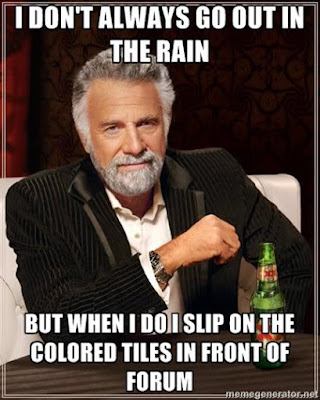 |
 |
| http://www.eonline.com/news/lindsay_lohan_tested_negative_alcohol/186437 |
The first picture was of Lindsay Lohan right after the premiere of Mean Girls, when the world fell in love with her. The second one is of her present day. So what happened? Why does everyone dislike her now?
I honestly do not believe that she is disliked for her lesbian affairs, alcohol problems, or cocaine addiction. I think is is entirely the media's fault for her "bad image." I think every person has tough phases in their lives but Lohan's were over-dramatized and the stories were not well balanced. Instead of giving her a sympathetic image, to show that she was battling some demons in her head and her life, the media used her screw-ups as gas to set her reputation on fire.
But it is not entirely the fault of the media. At first, Lohan was a "good, innocent red-haired girl" but then she changed her image. She became a typical rebellious blonde. Can hair color change a persons reputation? I think yes. No offense to anyone, but I think it is a lot harder to respect a blonde girl than a brunette haired girl. Society and movies instill these commonplaces in us but Lohan knew what she was doing when she went blonde.
Overall, Lohan's declining reputation was the effect the media and of her own image change.




